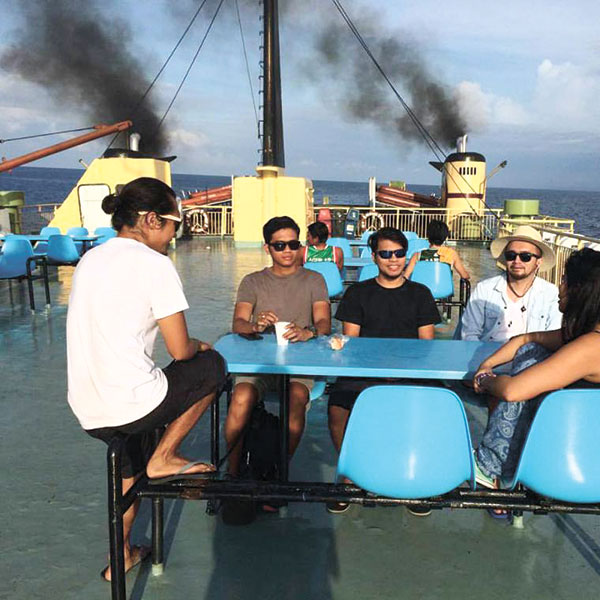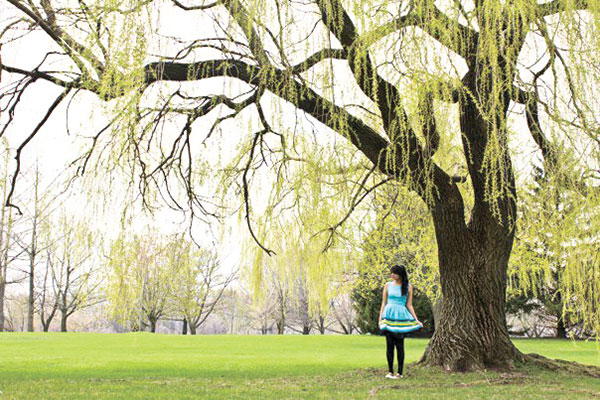Responsible and sustainable travel: How to travel green
 Rachel Arandilla
Rachel Arandilla
Postcard Travels
We travel for a number of reasons: to escape, to live, to love. I travel to be reunited with nature, to rekindle my hope in humanity, to get in touch with the world. It’s all for the sake of love for myself, for mankind and for my planet. Hence I will always decide on that one-way ticket over a Prada handbag.
And yet, it has recently dawned to me that travel isn’t the most environment-friendly hobby. I traveled to appreciate the world, but I’ve come to realize how much my travels have affected the environment.
My boat trip to Surigao was spewing so much pollution that I could see the black smoke visibly on a starless night sky. I witnessed an increased algae growth in the shoreline during my last Boracay trip.
And I can’t just blame other people. I don’t want to wash my hands off the problem, being guilty myself as well. I can’t finish my food sometimes. I drink water from plastic bottles. I drive a gas guzzler. I fly — a lot.
Air travel has a significant harmful impact on the environment.
Airplanes emit heat, noise and carbon emissions, thus a major contributor to climate change and global dimming. In fact, New York Times has referred to airline travel as “the biggest carbon sin.”
Despite the recent improvements in aviation efficiency and reduction of emissions, the rapid growth of air travel still offsets the technological advances.
It’s a bit too extreme to reject travel altogether for the sake of the planet, so instead we think about how we can reduce our carbon footprint. A green traveler should adhere to responsible travel practices that support environmental sustainability.
Often, these are things that we already knew but forgot along the way. A few reminders are always helpful. These little steps add up especially if more people do it. By being environmentally responsible, we ensure that the places we love to go to will last for a very long time, and hopefully our future grandkids will enjoy it as much as we did during our prime.
 Here are some pointers on how you can travel green.
Here are some pointers on how you can travel green.
Pack light. When we can’t avoid flying, travel light. The more weight cars, trains and planes carry, the more fuel they consume, and the more carbon emissions they produce.
Choose the most environmental form of transport available. On shorter trips, travel by land instead of flying. When flying, you emit 3 to 7 times more greenhouse gases than when you take the car, bus or train. If you can avoid land transportation, walk or bike to your destination when possible.
Fly the most direct routes. Take off and landing consume the most energy.
Fly economy. First class seats take up more space, and thus more energy, up to nine times larger than economy! Not only is it more budget-friendly to fly economy, but it’s environment-friendly too.
Offset your travel. We can’t avoid transportation–that’s a bit extreme. But why not offset your carbon emissions by doing something good for the planet. Plant trees, do cleanup drives and support environmental programs.
During the trip:
Order what you can only finish. I know that Pork Medallion looks really good, but you can’t probably finish it anyway. Order what you can only finish, and take away leftovers. Advocate zero waste consumption for the good of the community.
Use reusable bottles. Cut down wasteful water bottle purchases by using reusable plastic bottles and refilling in water fountains when you can.
Reuse hotel sheets and towels.
Take or leave your trash back home. Most developing countries don’t have proper recycling centers or proper waste disposal. Old gadgets, batteries and other synthetic items could be tossed in a landfill that could remain for hundreds of years. Pack them and Take back your trash. Recycle the cardboard boxes of toiletry products before your trip. Delimit your environmental footprint and encourage zero waste.
Switch off and unplug unused electronic devices and appliances when not in use. Limit your A/C, thermostat and hot water use only when necessary.
Support local. Support locally owned accommodations, eat at local restaurants, get local tour guides, buy locally grown food.
Be responsible with souvenirs. Don’t buy products that potentially endanger local treasures such as endangered species and cultural artifacts. Try not to pick up and bring home natural resources including shells, animal bones, plants and other artifacts.
Before doing volunteering efforts, do your research. So many scams and fake charity efforts have sprouted to fool do-gooders. Be responsible and know when and when not to volunteer.
“You become responsible, forever, for what you have tamed.” – Antoine de Saint-Exupéry





